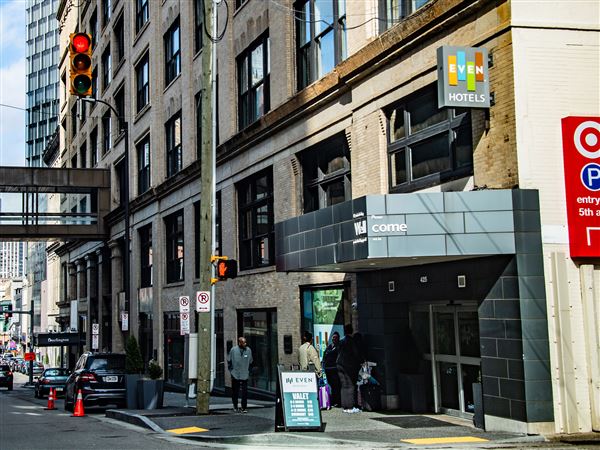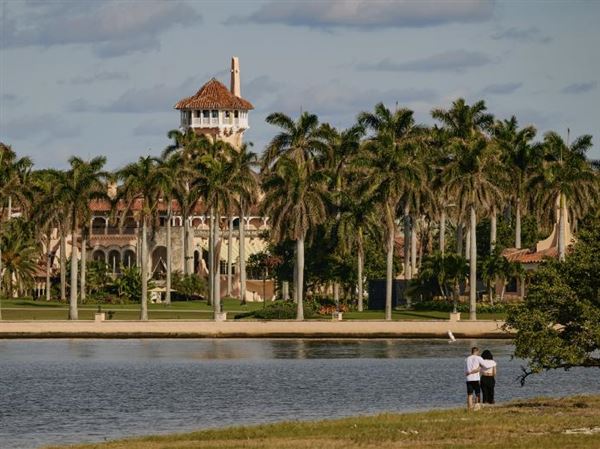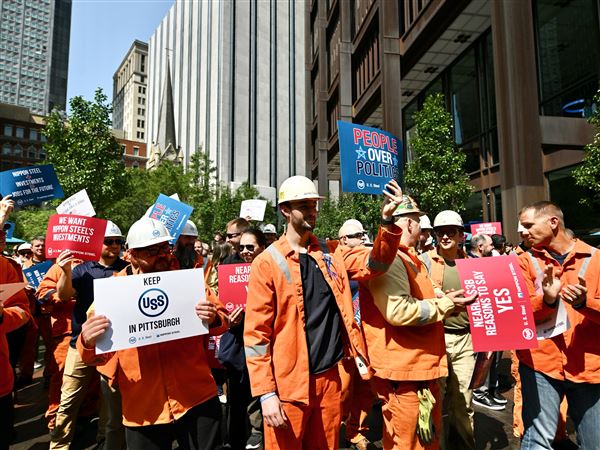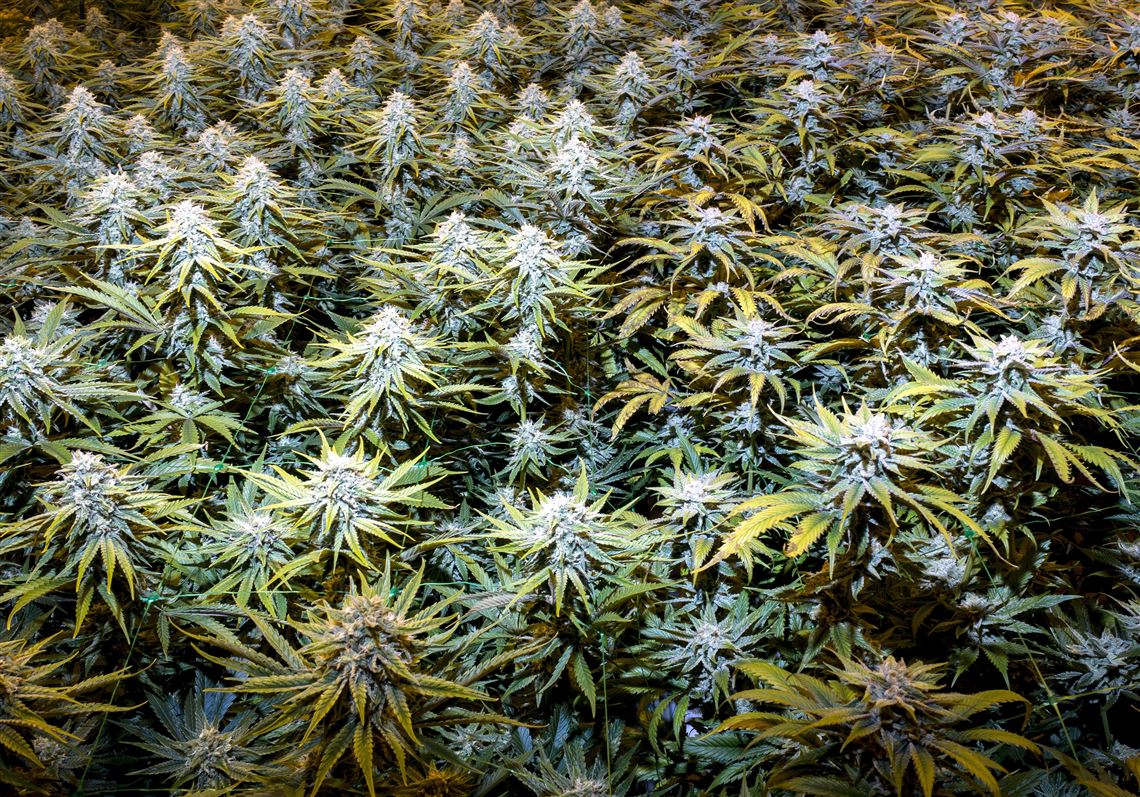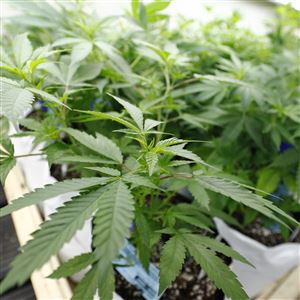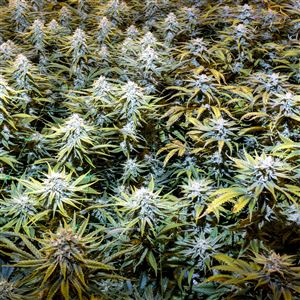It's not a matter of whether the United States will legalize cannabis, it's simply a matter of when, says Jonathan Caulkins, with an air of inevitability.
The important question the Carnegie Mellon University professor wants us to consider is this: What's the best way of doing it on a national level that will have the fewest unintended and harmful consequences?
Mr. Caulkins is a rare bird. He's a trained engineer with a Ph.D. from MIT in operations research. He has served as codirector of RAND's Drug Policy Research Center. He's a professor at CMU's Heinz College of Information Systems and Public Policy Management. And he has a laserlike focus on marijuana, specifically, the social ramifications of legalization.
As the Americas rush to commercialize weed on an epic scale, Mr. Caulkins worries about aggressive marketing and entrepreneurs seeking to profit from abuse and dependence. He foresees a day when cannabis becomes a pure commodity selling for $1 a gram. He thinks of mechanisms to keep the industry behaving responsibly.
Mr. Caulkins — along with coauthors Beau Kilmer and Mark Kleiman — first published “Marijuana Legalization, What Everyone Needs to Know” in 2012. The book successfully debunked several marijuana policy myths. The trio called into doubt claims that legalizing weed would significantly save courts costs and empty prisons. It turns out most people "in jail for marijuana" are actually imprisoned on distribution charges and would be behind bars even if cannabis were legal.
The New Jersey Legislature is voting on legalization as early as next week, seeking to join 10 other states in making cannabis available for adult recreational use. Pennsylvania and Delaware have bills pending in their legislatures.
The Inquirer and Daily News spoke with Mr. Caulkins earlier this month.
As prohibition ends across wide swaths of the country, how do you foresee the industry developing?
The future is always uncertain. Legalizing it won't just be the same old marijuana without the arrests. It will change stuff. Just not in ways you can predict.
Already you see former marketing executives of Victoria's Secret, Nike, American Apparel, and Big Alcohol getting into cannabis. Why is that a big deal?
In the past the competitive advantage certain producers had was knowing how to grow the marijuana plant. That's changed. In the future, the key to succeeding in the cannabis space will be marketing skills, using glamorous imagery and getting product placement in Hollywood movies. It will be a world of marketing guys and MBAs with a few people growing cannabis for them. It will be commoditized, because it's not that hard to grow.
How low can prices go?
To almost zero. It may be a decade out, but I don't think there's any reason why after national legalization and full economies of scale, you won't be able to produce it at prices of things businesses can give you for free for now, like chocolates on your pillow in a hotel room or mixed nuts at a bar. It's possible a hotel or restaurant could buy 1,000 pre-rolled joints at a time that could literally be given away to customers. The production costs are that low.
What are the dangers that could come with weed that costs almost nothing?
I'm concerned about public health. That price helps people to restrain themselves. Dirt-cheap cannabis could open the door to people who are poor or young, or allow very heavy use by people who have lost control of their habit. Alcoholics on Skid Row don't drink champagne. They care about the price of low-end stuff. We've estimated the cost could be $1 an hour or less for the high.
You have lots of reservations about speeding toward the development of a large commercial industry. How do you prevent one cartel from replacing another?
The simplest way is to add just one rule: In order to apply for a license to produce or distribute marijuana, you'd have to be a nonprofit. You can't do it if you're for-profit. The nonprofit board will have to reserve seats for children's advocates and the treatment community, and the charter must say it exists to undercut the illegal market and not to promote greater consumption.
Another option is to create a government monopoly and sell it through the equivalent of state stores.
How realistic are projected tax revenues and job creation?
With tax revenues, you're going to get some. But the challenge comes if the tax is figured as a percentage of the cost. If the price drops, then your tax revenues drop. A 15 percent tax on an ounce that sells for $1,000 is $150. A 15 percent tax on an ounce that drops to $10 is $1.50.
There is no real increase in jobs. Before legalization, there were lots of people distributing cannabis. They were called drug dealers, but they weren't reporting their employment status or their income. However, they were working and being compensated. Now there are people in the state-legal cannabis industries who are filling out W-2s and paying taxes.
What haven't we addressed?
We haven't' talked about Canada. We have a 3,000-mile border with the first major nation to legalize cannabis. I can't imagine how we'll continue to keep it illegal with what they've done.
The other thing: Kick it forward 10 or 20 years. You could have 30 countries around the world with legal cannabis. Will the production be anywhere in the U.S. at all? Maybe. But that would be because we have really efficient farmers. They'll have to compete with Colombia or Thailand.
A comparison with casinos is an apt one. There were a lot of economic benefits for New Jersey when Atlantic City had the only casinos on the East Coast. But when other states legalized casino gambling, the bloom came off the rose. Atlantic City had a good run, maybe 30 years. How long will New Jersey get the equivalent run with marijuana? I don't think it will be as long this time.
First Published: December 13, 2018, 3:22 a.m.
